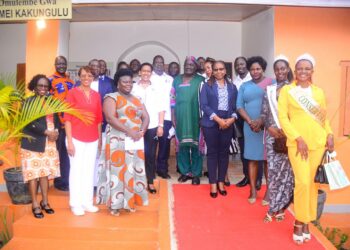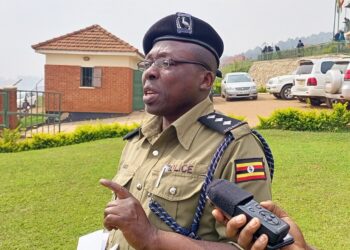There seems to be some confusion regarding the direction of various agencies working in the agricultural sector, particularly in coffee. There was a plan in 2015 called the ‘Coffee Roadmap’ led by Professor Ezra Seruma, to increase coffee production to 20,000,000 bags.
This project was implemented by the Uganda Coffee Development Authority (UCDA), and within the past five years coffee production has increased from 2.5 million bags to 6.7 million bags, with current export earnings of $827,000,000. Although there is still a long way to go, this is a substantial achievement and makes the coffee sector key in export earnings.
There are several other significant projects in the agricultural sector such as ‘Operation Wealth Creation’, and recently we have had the introduction of ‘The Parish Development Model’. It also seems that the plan to merge government bodies into ministries will have an effect on the coffee sector because UCDA is scheduled to be merged into the Ministry of Agriculture. This is a confusing number of initiatives, all of which bring a new direction. Most people are unclear about the actual workings of the Parish Development Model, nor are most parishes ready, but budgets that were previously allocated through UCDA now appear to be directed to the Parish Development Model.
In order to get farmers to plant more coffee UCDA were financing purchase of coffee seedlings grown from seed (Elite).
However, recognizing that Coffee Wilt Disease had became a real threat, Nacore developed several lines of coffee wilt disease resistant (CWDR) clonal coffee, so UCDA switched to recommending that farmers plant CWDR clones rather than Elite. But no sooner was this variety available than the budget for seedlings was withdrawn. Members of Parliament are now demanding the reinstatement of this budget for purchase of seedlings since CWDR plants in nurseries are becoming overgrown, while farmers do not have good planting material.
UCDA was beginning to get messages on good agronomy out to farmers, such as the value of pruning, backed up by providing organic fertilizer for those who were pruning their trees, but now the budget for this is uncertain. We were just getting used to the role of UCDA when we are presented with a different development model, different priorities and a change in budget priorities. These various projects may not be bad in themselves, but there is confusion as to who is doing what, and what exactly we are trying to achieve.
We went through a lot of debate to pass the Coffee Bill aimed at bringing order to the sector, and now which body will be the implementer of the new law? We developed CWDR clones and then withdrew the money for farmers to purchase them. We also have confusion about who does what, with irrigation falling between the Ministry of Agriculture and the Ministry of Water and Environment, resulting in inter-ministerial squabbling.
All major coffee exporting countries have a separate coffee organization responsible for the promotion and marketing of their coffee. Most are linked into the International Coffee Organization (ICO), but we chose to leave the ICO for reasons that are still unclear. Now we plan to absorb the organization promoting the growth of the coffee sector into a ministry. We should be clear: the growth of the coffee sector is good for the development of this country. It brings in foreign income and helps to narrow the trade deficit. It raises household incomes among small farmers in rural areas enabling them to pay school fees and medical bills. Educated healthy children are the future of Uganda. Raising the quality and quantity of Ugandan coffee is not rocket science and is doable, but farmers need clear direction.
With all the different initiatives and political controversies affecting the coffee sector, there is a confusing picture that is likely to dampen down the progress we have already made, which is in no one’s best interest.
Do you have a story in your community or an opinion to share with us: Email us at editorial@watchdoguganda.com













